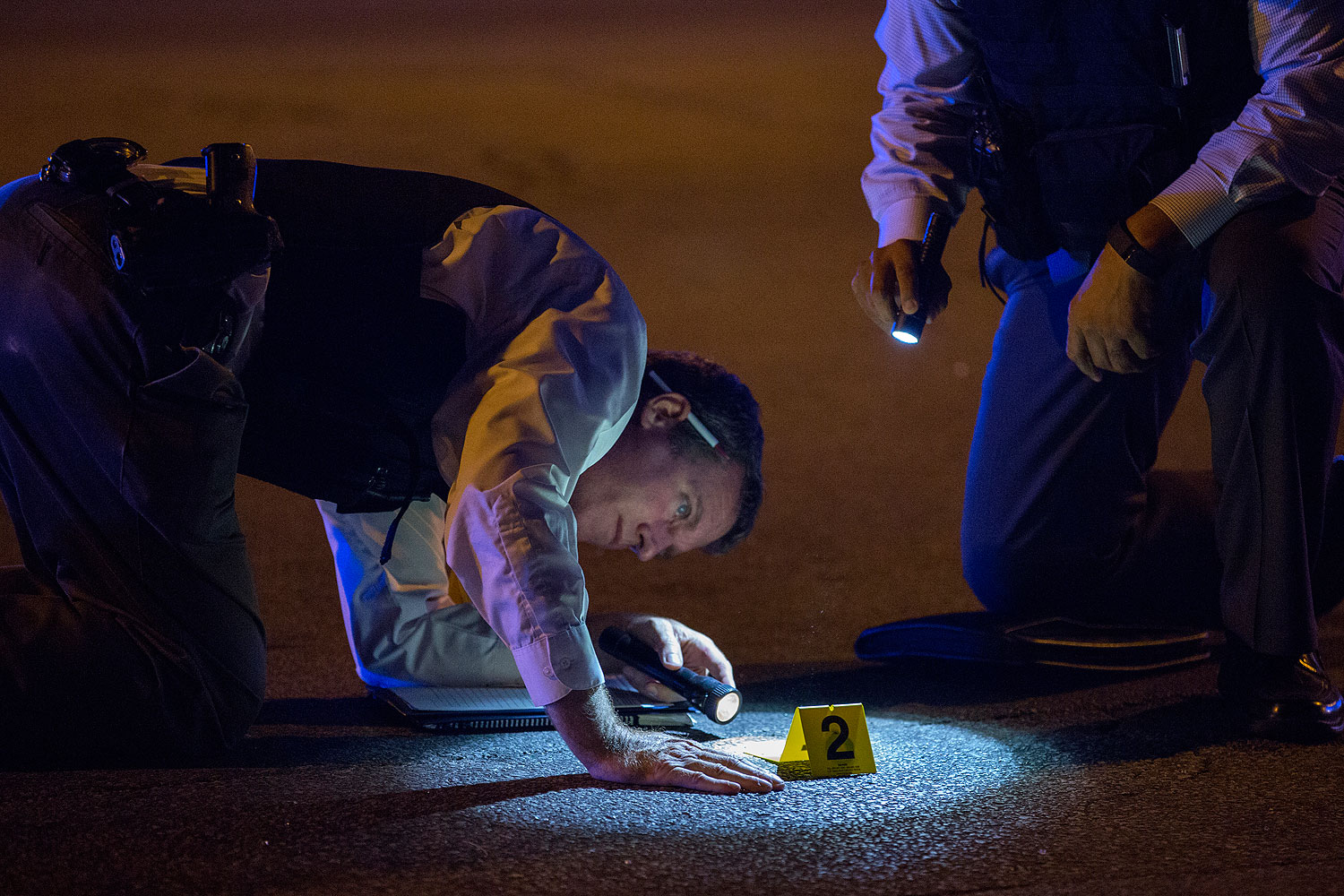Update: I can't believe I didn't include Noah Isackson's 2013 story from my very own employer, written after just 132 out of 507 murders the prior year had been cleared—25%. It goes into many, many details about that number, not just the number of detectives (though there is that), but a lack of forensic investigators, and changes in how detectives were distributed throughout the city. Kass's piece, for instance, focuses on making more likely that witnesses will talk to detectives; Isackson makes the case that the reorganization made that harder. It's well worth your time.
With Chicago's homicide total up so much this year—the city has surpassed its 2015 total already—a lot of possible reasons for the increase have been explored. Cuts to social services during the state's long-running budget impasse have gotten attention. One popular theory, for which there seems to be correlative evidence, is that a renewed attention to incidents of police shootings has undermined faith in the police force, meaning that residents are less likely to give them information and more likely to take matters into their own hands.
They're complex, but in some basic way similiar—a decaying of institutions that provide residents with alternatives to crime, in particular institutions that the city as a whole, not to mention the state, can use to effect change. In a fundamental way, it's a further isolating of troubled neighborhoods.
Recent weeks have brought a new and well-reported focus on yet another facet of this process: the decline in Chicago's police force and, in particular, its very small number of detectives, generally the most knowledgeable and experienced on the force.
Before he stepped in it yesterday, the Trib's John Kass had a compelling piece that linked a couple of these themes—fewer detectives leading to less trust in the police. One component of police legitimacy (a well-studied topic) is, obviously, not being bad cops. Another is being good cops: trustworthy, practiced, smart. And familiar: "A common theme recently is that people in the most violent neighborhoods don't cooperate with police, but the fact is they won't talk to cops they don't know. And they won't talk with others listening."
Reuters put some remarkable figures to this recently; not only has the number of detectives dropped by a quarter over the past eight years, Chicago's percentage of cops who are detectives is half that of New York City and Los Angeles. The city's homicide clearance rate is low and dropping, as David Heinzmann reported today in the Tribune, and lack of cooperation is cited throughout as a cause.
It's not a surprise. Back in 2010, when I worked at the Reader, Ben Joravsky published a long investigation titled "The Vanishing Beat Cop." It should sound both familiar and prescient:
"The problem is there's not enough police on the street—period," says one senior officer. "I've been at this job for 20 years and it's never been this bad."
Like so many others in this faltering economy, the police are being asked to do more with less. What the decrease means in terms of public safety is hard to say because there's been no corresponding statistical crime spike—as Daley and police superintendent Jody Weis continuously remind the public. Even so, common sense says the falling number of beat cops will eventually pose a public safety issue that Chicago must come to terms with.
Beat cops are, of course, the pipeline to detectives. But they were falling in number, too:
The same staffing declines are occurring with other positions, like detectives. Don't get cops started on that subject. "We don't have enough detectives," says the senior officer.
If fewer cops on the street means fewer crimes prevented, fewer detectives means fewer crimes solved. One shortage feeds the other. Clearance rates, meaning the percentage of cases where a suspect is charged, have been steadily falling. In 2001 the clearance rate for murders was 54.2 percent. In 2008, the latest year for which the department has released numbers, it was 37.4 percent.
As Heinzman reported, the most recent figure is about 30 percent.
Residents are even trying to explore alternatives to policing entirely, literally working towards their abolition. It's a small number of people and a seemingly improbable idea, but Tamar Manasseh's Englewood-based organization Mothers Against Senseless Killing seems to be making considerable progress. Either way, police are the last link in the chain—there's not a lot they can do unless someone is actually committing a crime—so exploring crime strategies that don't involve police is generally a good idea. Even if you think we should not only have cops but even more of them, relying primarily or solely on them is almost by definition waiting until it's too late. That's why cuts to social services have people exploring whether that's had an effect on driving up crime rates.
The recent reporting is a spotlight on a potentially serious problem. But it's more than that, as well: a possibility that police legitimacy and effective policing tactics aren't necessarily a zero-sum game.



